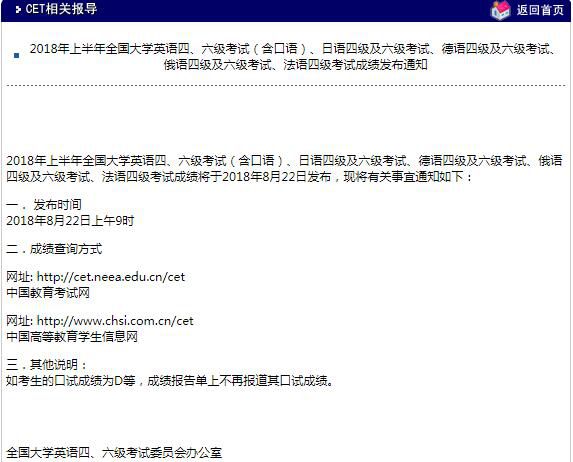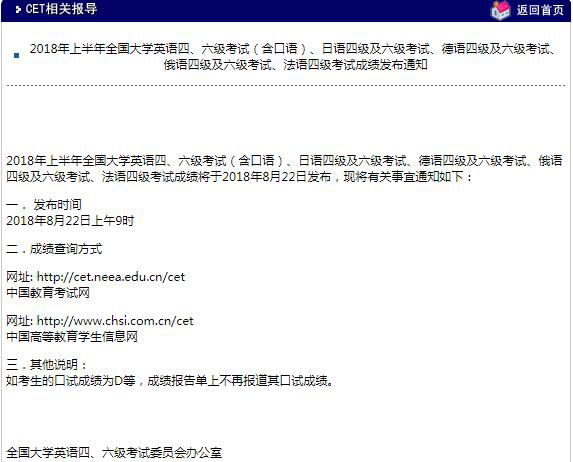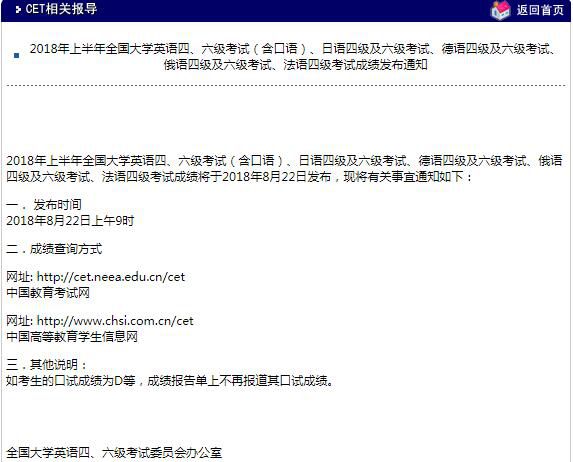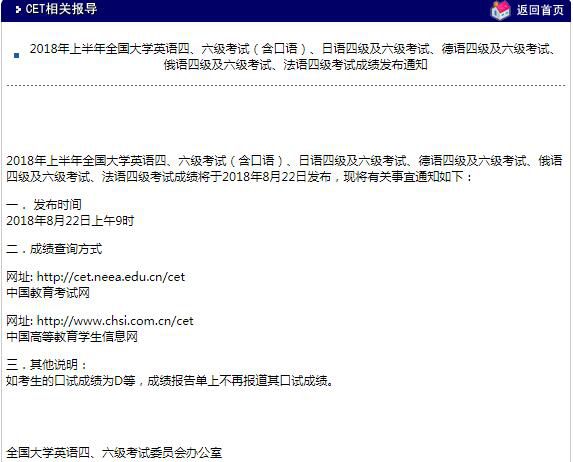专业四级考试词汇语法详细解答40套九
|
Test Nine??? 动词后接不定式或动名词 有些动词或词组如admit, appreciate, avoid, consale, defer, delay, enjoy, escape, excuse, finish, mention, mind, miss, quit, postpone, practise, resist, risk, (can’t) stand, suggest, give up, put off等后面只能接动名词。例如:? I enjoy playing football.? I don’t mind sleeping with the door open.? 有些动词如stop, remember, forget, try, mean等接不定式或动名词做宾语,意思各不相同。? try doing sth试试看(没有付诸的行动)? try to do尽力去做(已有行动)? mean doing sth意味着? mean to do sth打算?? 近义词辨析? change, alter, convert, modify, vary? 这组词均含有“变化”的意思。? change 最常用,指任何一种变化过程,但多用于指某人或某物发生根本性转变,失去了原来的身份特征,前后完全不同。? Years of hard work had changed her a great deal.多年辛苦劳作使她变了很多。? alter 指对人或事物的某些特征进行某种程度的更改,但并没有使人或事物的性质发生根本改变。? She had to ask the dressmaker to alter the dress for her.她不得不请裁缝把衣服改一下。? convert 指使事物的条件、性质、功能等发生重要改变、转换、或转化。? Scientists are trying to find cheaper ways to convert salt water to fresh water.科学家在努力寻找将海水淡化的更廉价的方法。? modify 指在较小的范围内进行形式上的修改或调整。? They have to modify the terms of their lease.他们不得不修改租赁条款。? vary 可以指仅仅改变事物的外观,也可指使事物的内在性质发生变化,通常是在同一组事物中将一种情形改变为另一种情形。? She varies the program each month to make it more attractive.每个月她都对节目做些变动,使它更吸引人。 全真模拟试题? 1. Nowhere in nature is aluminum found free, owing to its always ?____? with other elements, most commonly with oxygen.? A. being combined B. having combined? C. to combineD. combined? 2. Physics is the present?day equivalent of ?____? used to be called natural philosophy, from ?____? most of present?day science arose.? A. which, whatB. that, which ? C. what, whichD. what, that? 3. On no account ?____? ever leave the baby at home alone.? A. should youB. you shouldC. shall youD. you shall? 4.?____?the center of our planetary system was considered as heresy by the church in the Middle Ages.? A. It is the sun and not the earth ? B. That the sun and not the earth? C. Being the sun and not the earth? D. The sun and not the earth? 5. The reason that his property was confiscated by the country, it ?____?, was that he was involved in a lot of fraudulent activities during the war.? A. was turned outB. was being turned out? C. being turned out D. turned out? 6. I’d rather you ?____? by train because the weather forecast said there would be heavy snow tomorrow.? A. wentB. shouldgoC. will goD. go? 7. Einstein won the Nobel Prize in 1921 and enjoyed great fame in Germany until the rise of Nazism ?____? he was expelled from Germany because he was a Jew.? A. whenB. whoC. thenD. which? 8. Nowhere but in the remotest region of the country ?____?find a place to settle down.? A. can heB. he canC. heD. for him to? 9. With one leg broken in that car accident, he cannot even walk, ?____? run. A. let alone B. that’s to say ? C. not to speak D. not to mention? 10. ?____?, she led a life of complete seclusion.? A. Being disgracedB. Disgraced? C. DisgracingD. She was disgraced? 11. Sometimes a bus ?____? gets on the bus to check the tickets.? A. agentB. officerC. conductorD. inspector? 12. He made a quick ?____? from his illness.? A. reliefB. recoveryC. survivalD. relaxation? 13. ?____? the stress of examinations are over, we can all relax.? A. WhileB. Even thoughC. Now thatD. For? 14. My cousin Nancy is often in a poisonous mood; I suppose it’s because she is ?____? child.? A. oneB. a loneC. a singleD. an only? 15. ?____? the factors already referred to, people sometimes feel insecure because their motives are misunderstood by others.? A. But forB. Except forC. Apart fromD. Except that? 16. If the scheme is ?____? carried out without waste of time or energy I shall be completely satisfied.? A.relativelyB. noticeably ? C. appropriately D. efficiently? 17. One day we all may find it useful to have a(n) ?____?for sending documents, writing any pictures across the telephone lines.? A. receiverB. echoC. extensionD. facility? 18. To their credit the Department of Energy ?____? these ideas and funded a detailed study.? A. took overB. took onC. took upD. took to? 19. Feeling that she was in the right, she took ?____? at the dirty remark.? A. protectionB. offenseC. defenseD. guard? 20. They agreed to share in common any ?____? of funds after all expenses were paid in full.? A. sufficiencyB. surpassC. excessD. surplus? 21. He was?____?her in intelligence.? A. belowB. underC. beneathD. down? 22. It took a lot of imagination to come up with such an ?____?plan.? A. brightB. cleverC. brilliantD. ingenious? 23. In the refining process,rice and flour lose much of their ?____?.? A. acidB. alcoholC. vitaminD. sulphur? 24. Individual lines of the poem were very beautiful, but I didn’t see how the lines fit together. To me, the poem wasn’t ?____?.? A. inherentB. coherentC. logicalD. corporate? 25. To an especially sensitive child, a simple scolding can be a ?____?experience.? A. hystericalB. grievousC. graciousD. sensible? 试题答案与解析?? 1. A)【句意】由于铝总是和其它元素结合在一起,最常见的是和氧气在一起,所以自然界中哪里也不会找到单独的铝元素。? 【难点】owing to 是介词,后应接名词或动名词,根据题意,应接被动语态形式。? 2. C)【句意】当今的物理就是以前被称之为自然哲学的等同物,大多数现代科学都产生于自然哲学。? 【难点】what used to be called作定语,修饰natural philosophy,from which引导一个非限制性定语从句。? 3. A)【句意】你决不应该把小孩一个人放在家里。? 【难点】on no account 意为“决不”属否定意义的词,引导倒装句,所以只有A)项正确。? 4. B)【句意】太阳系的中心是太阳而不是地球这一事实被中世纪的教会认为是异端邪说。? 【难点】That引导主语从句,全句的谓语是was considered.? 5. D)【句意】后来证明他的财产被国家没收的原因是,战争期间他参与了诈骗活动。? 【难点】it turned out (to be)这里作插入语,意为“证明?是…”。 6. A)【句意】我宁愿你乘火车去,因为天气预报说明天将有大雪。? 【难点】would rather 后接虚拟语气的从句,用一般过去时。? 7. A)【句意】爱因斯坦于1921年获诺贝尔奖金,在德国享有盛誉。后来随着纳粹主义的兴起,他被逐出德国,因为他是个犹太人。? 【难点】关系副词when引导的定语从句修饰名词词组the rise of Nazism。? 8. A)【句意】他只能在最遥远的地方找个安身之处。? 【难点】Nowhere是否定副词,位于句首引导倒装句。? 9. A)【句意】在车祸中,他的一条腿骨折,他连走路都不行,更不用说跑了。? 【难点】let alone意为“更不必说”;not to mention意为“再加上”;that is to say意为“也就是说”。? 10. B)【句意】失宠后,她过着完全隐居的生活。? 【难点】disgraced在这里是过去分词作状语,表示伴随状态。? 11. C)【句意】有时,公共汽车检票员上车查票。? 【难点】bus conductor意为“公共汽车售票员”;agent意为“代理人,中介人”;officer意为“军官,官员”;inspector意为“检查员,视察员”。? 12. B)【句意】他很快恢复了健康。? 【难点】recovery意为“恢复,复苏”,后接介词from;relief意为“宽慰,安心”;relaxation意为“放松”;survival意为“生存”。 13. C)【句意】既然考试的紧张已经过去,我们现在可以放松了。? 【难点】now that意为“既然;由于”,用于新的事情的发生,接一般现在时的句子。while意为“虽然”;even though意为“即使”,for意为“因为”,不能用于句首。? 14. D)【句意】我表妹南希的情绪经常很糟,我想这是因为她是独生子的缘故。? 【难点】表示“独生子”的时候,只能说an only child。? 15. C)【句意】除了已经提及的因素外,有时人们感到不安全是因为他们的动机被他人误解。? 【难点】apart from是包含在内的“除了”;excepr for和except that是不包含在内的除了;but for意为“要不是”。? 16. D)【句意】如果计划能在不浪费时间和精力的情况下得到有效实施,我将十分满意。? 【难点】efficiently意为“有效地”;relatively意为“相对地”;noticeably意为“显而易见地”;appropriately意为“恰当地”。? 17. D)【句意】有朝一日我们会发现,拥有一个能通过电话线发送信息、绘制图片的设备是非常有用的。? 【难点】facility意为“设备”;receiver意为“电话听筒”;echo意为“回声;回音”;extension意为“分机”。? 18. C)【句意】令他们感到光荣的是,能源部采纳了这些想法并为一个详细的研究报告作了资助。? 【难点】take up意为“采纳(观点)”;take over意为“接收,接管,占据”;take on 意为“承担”;take to意为“喜欢上”。? 19. B)【句意】她觉得自己有理,因此,她对这样肮脏的话语十分恼怒。? 【难点】take offence意为“对…生气”;protection意为“保护”;defense意为“防卫”;guard意为“看守;警戒”。? 20. D)【句意】他们同意在全部费用支出后共享剩余的资金。? 【难点】surplus意为“剩余,剩余额”;sufficiency意为“足量,充足”;surpass是动词,不适合本句;excess意为“超过”。? 21. A)【句意】他的智力不如她。? 【难点】below意为“(智力、地位、军阶等)低于”;under意为“(尺寸、价值、数量、程度、标准等)少于,低于”;beneath意为“在…下方;(地位,级别等)低于,次于”;down意为“往…下端”。? 22. D)【句意】想出这样一个天才的计划需要丰富的想象力。? 【难点】ingenious意为“(方法等)巧妙的;制作精巧的;bright意为“聪明的,机灵的”;clever意为“头脑机敏的,伶俐的”;brilliant意为“才华横溢的,有才能的”。? 23. C)【句意】在加工过程中,大米和面粉失去大量维生素。? 【难点】vitamin是“维生素”,其它词义不符本题。acid是“酸”;alcohol是“酒精”;sulphur是“硫”。? 24. B)【句意】这首诗的每个单行写得很美,但我不明白各行是如何联系在一起的。依我看,这首诗不连贯。? 【难点】coherent意为“连贯的,紧凑的”;inherent意为“内在的,固有的”;logical意为“逻辑的”;corporate意为“社团的,法人的”。? 25. B)【句意】对十分敏感的儿童来说,一次简单的呵斥可能会成为极其痛苦的经历。? 【难点】grievous意为“极痛苦的”;hysterical意为“情绪暴躁不能控制的”;gracious意为“亲切的,有礼的”;sensible意为“明白事理的;合情理的”。 |








